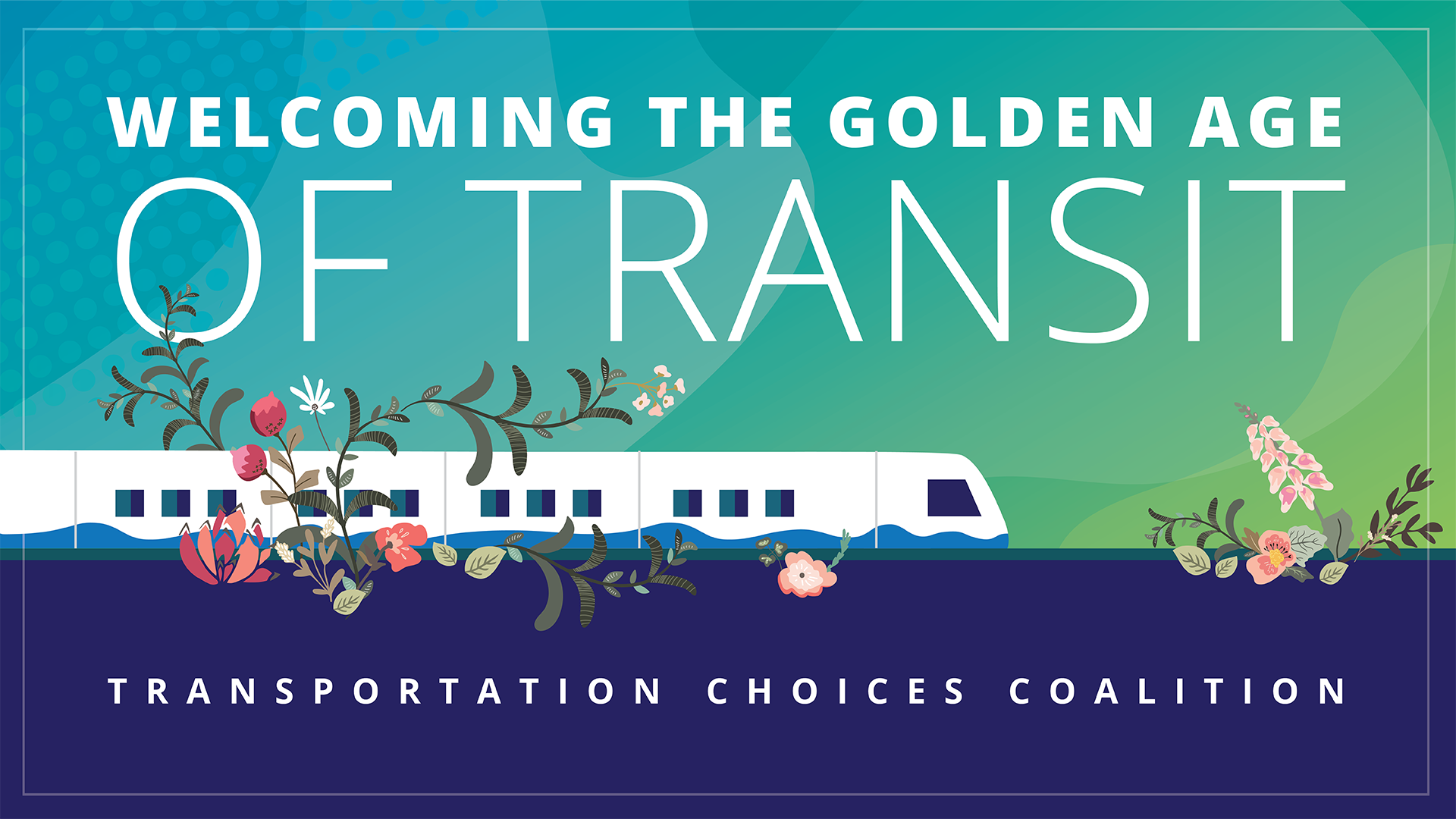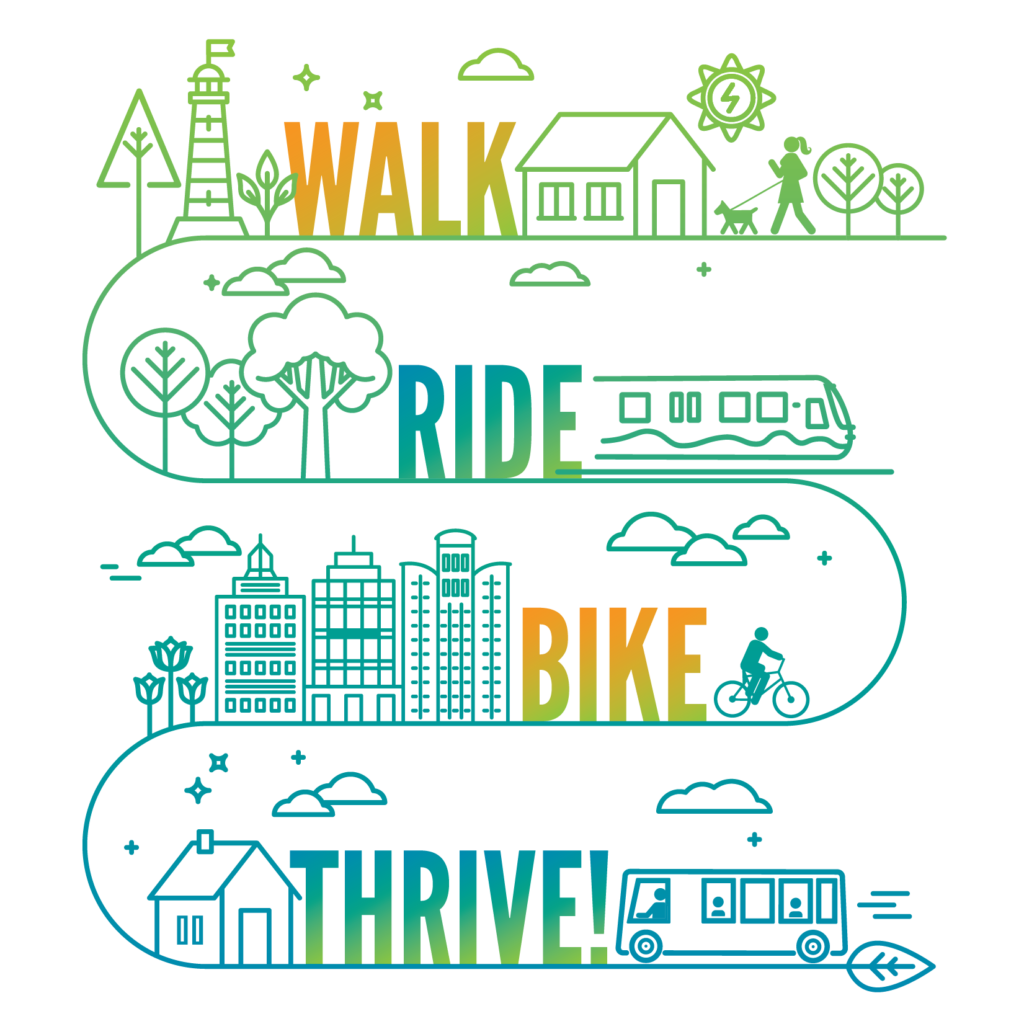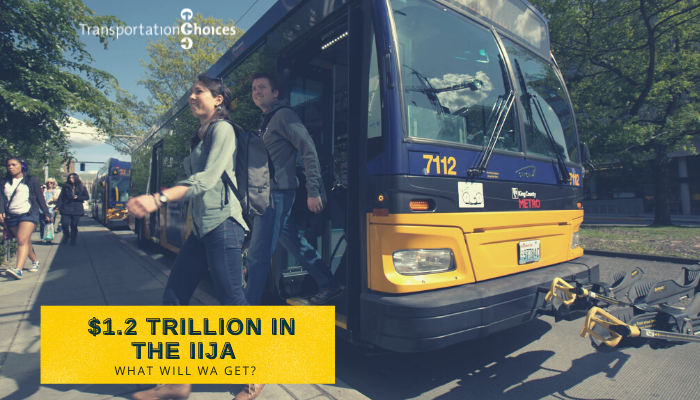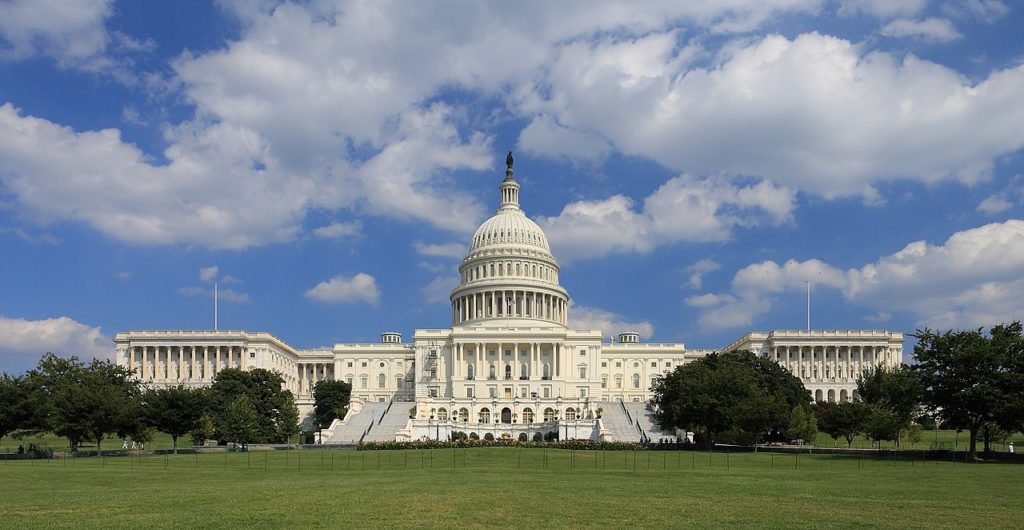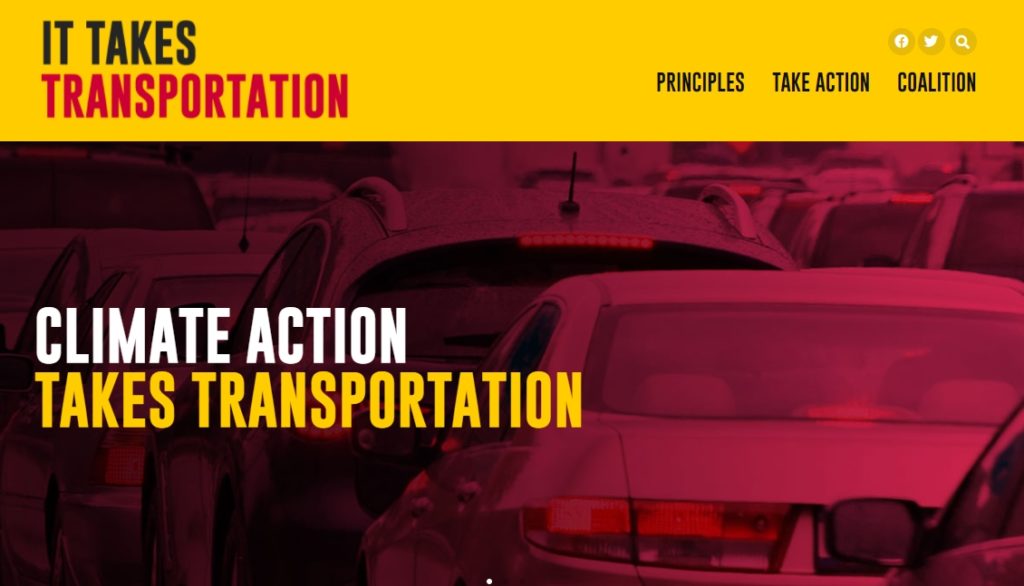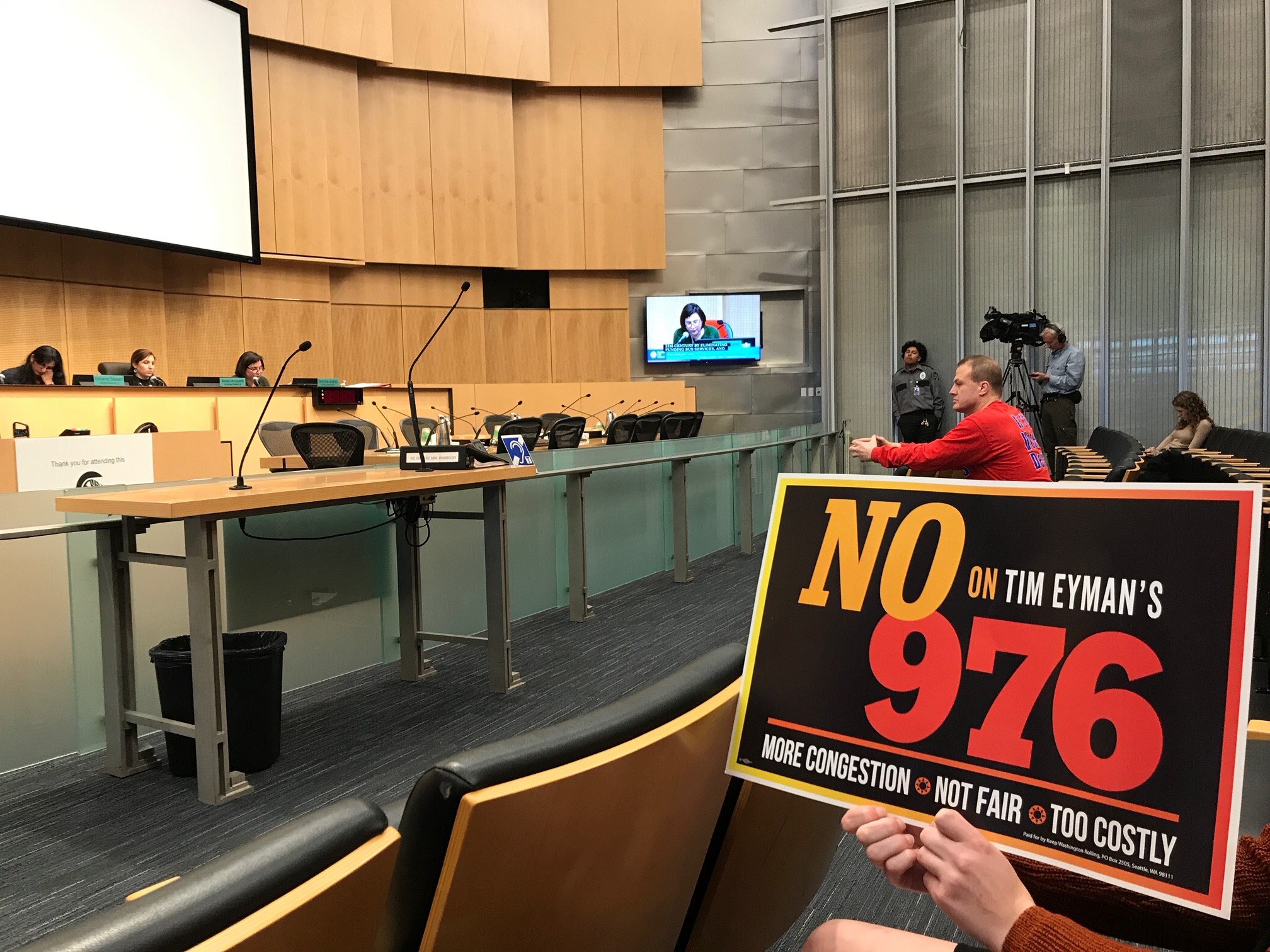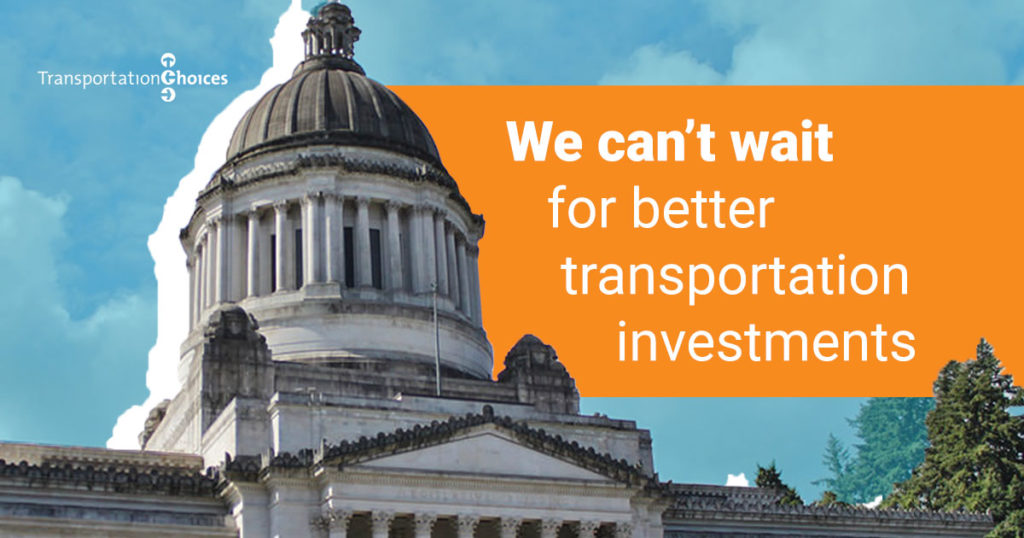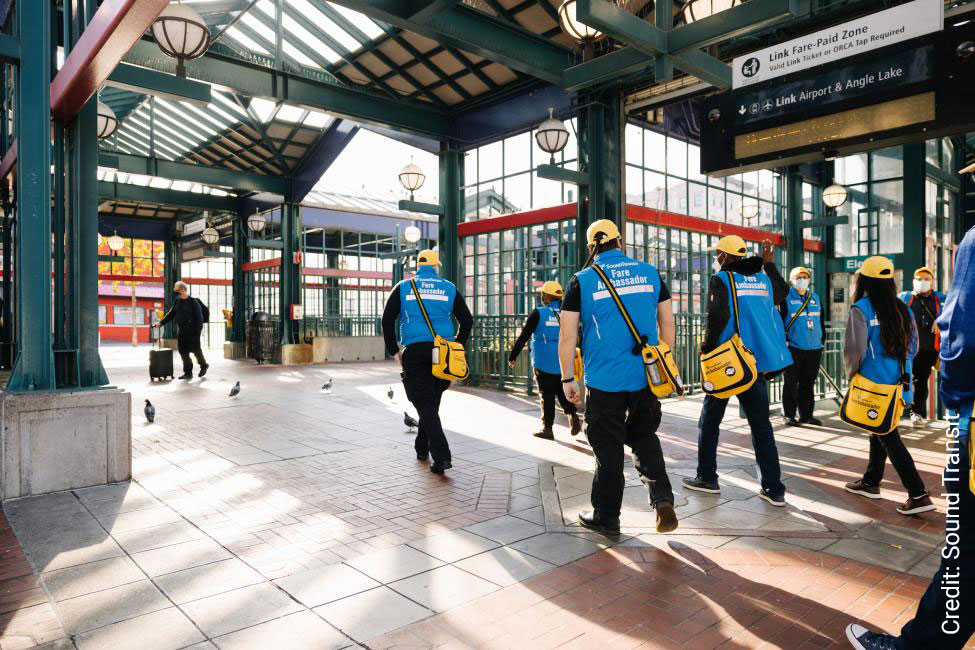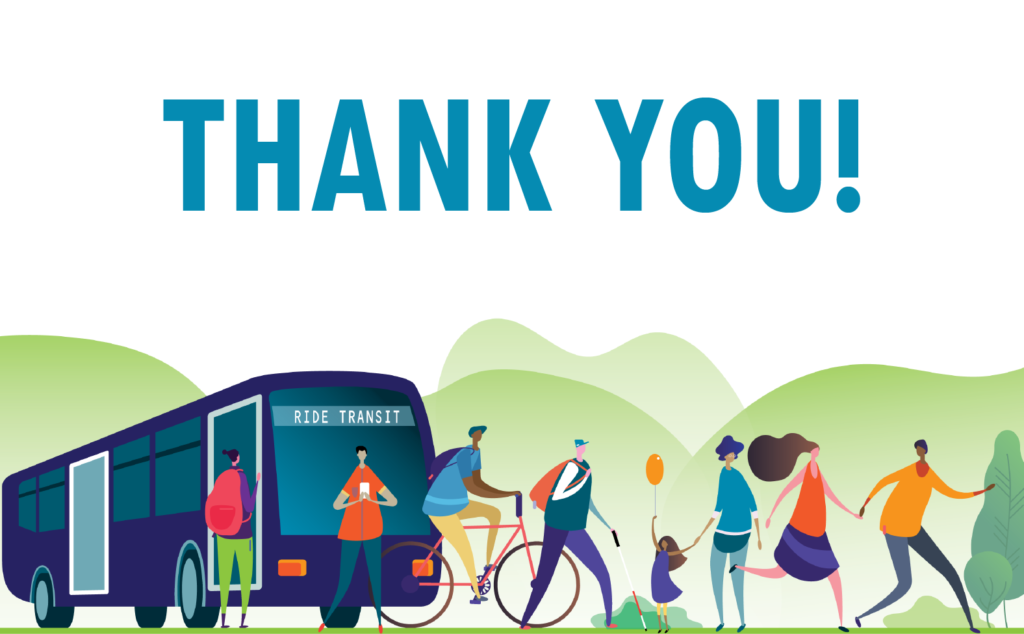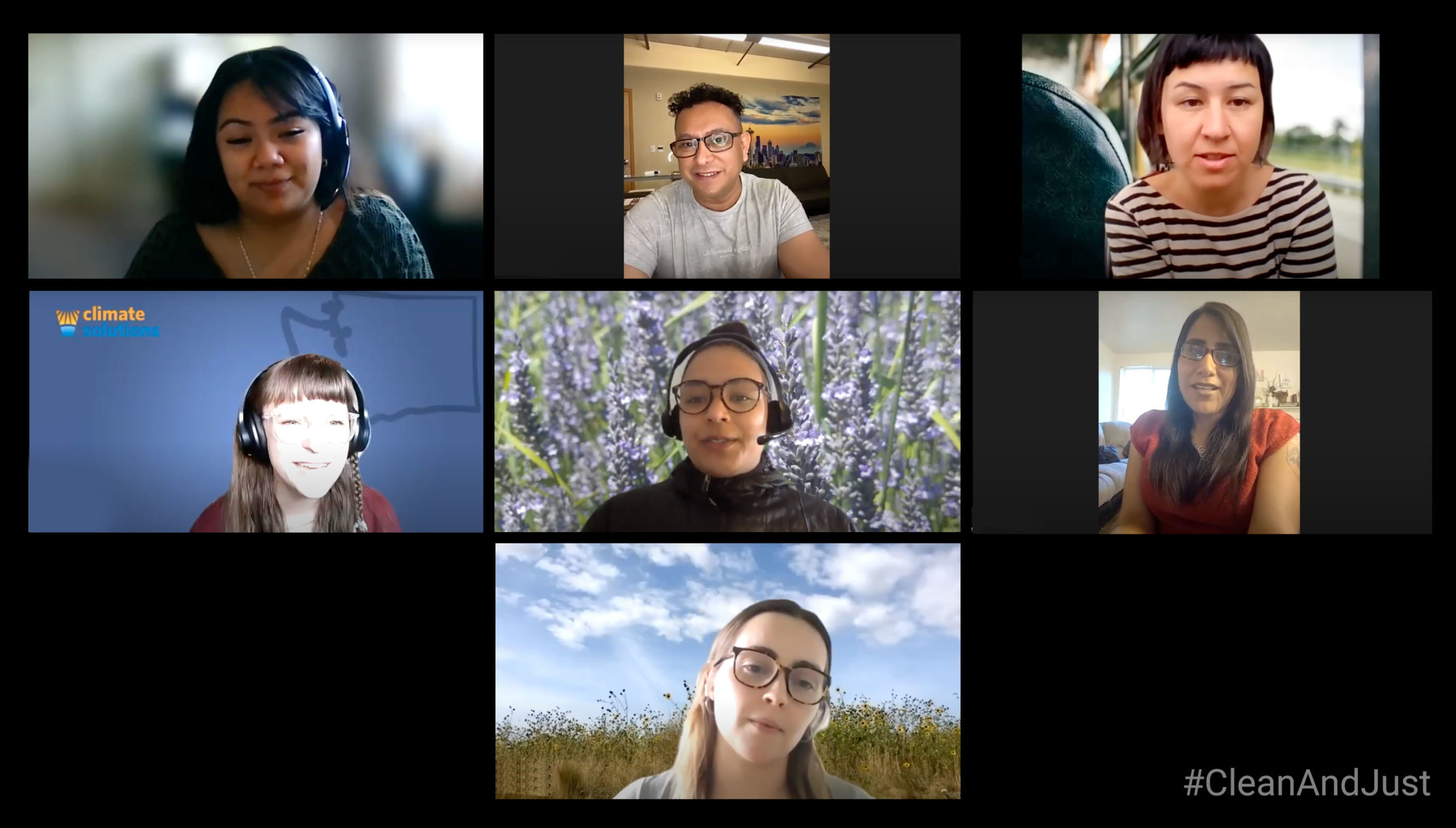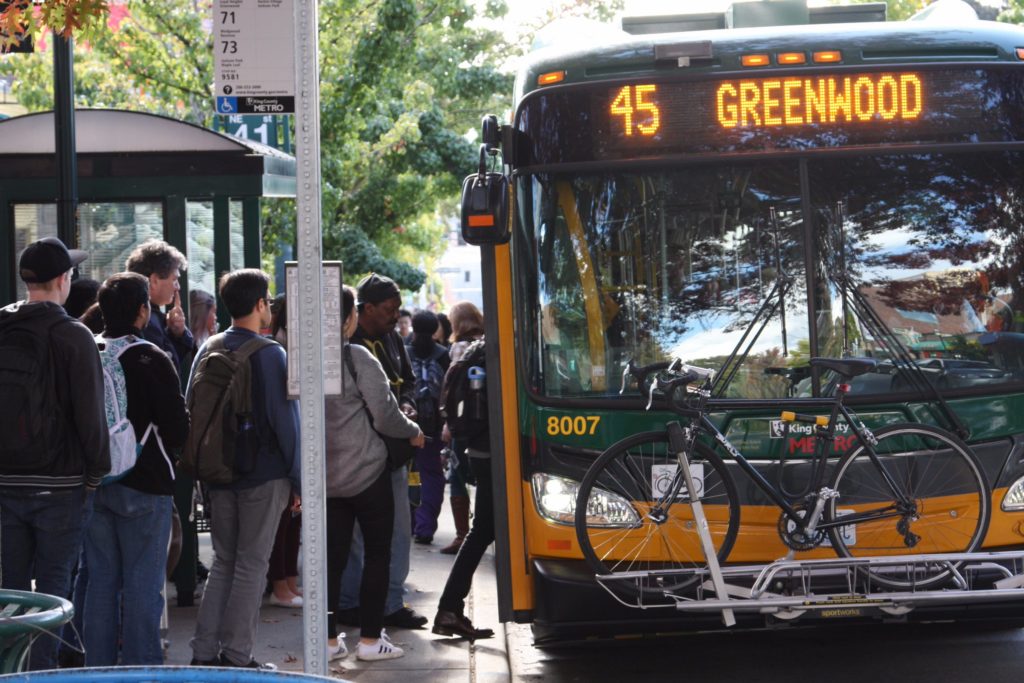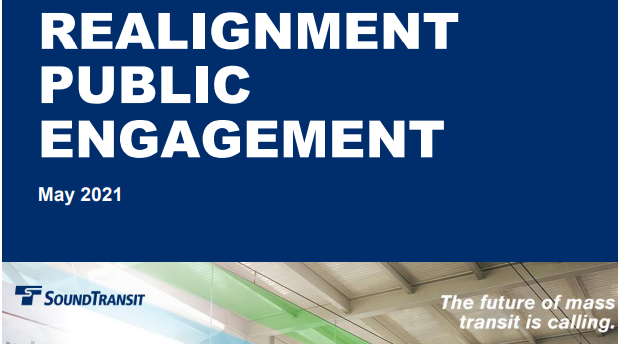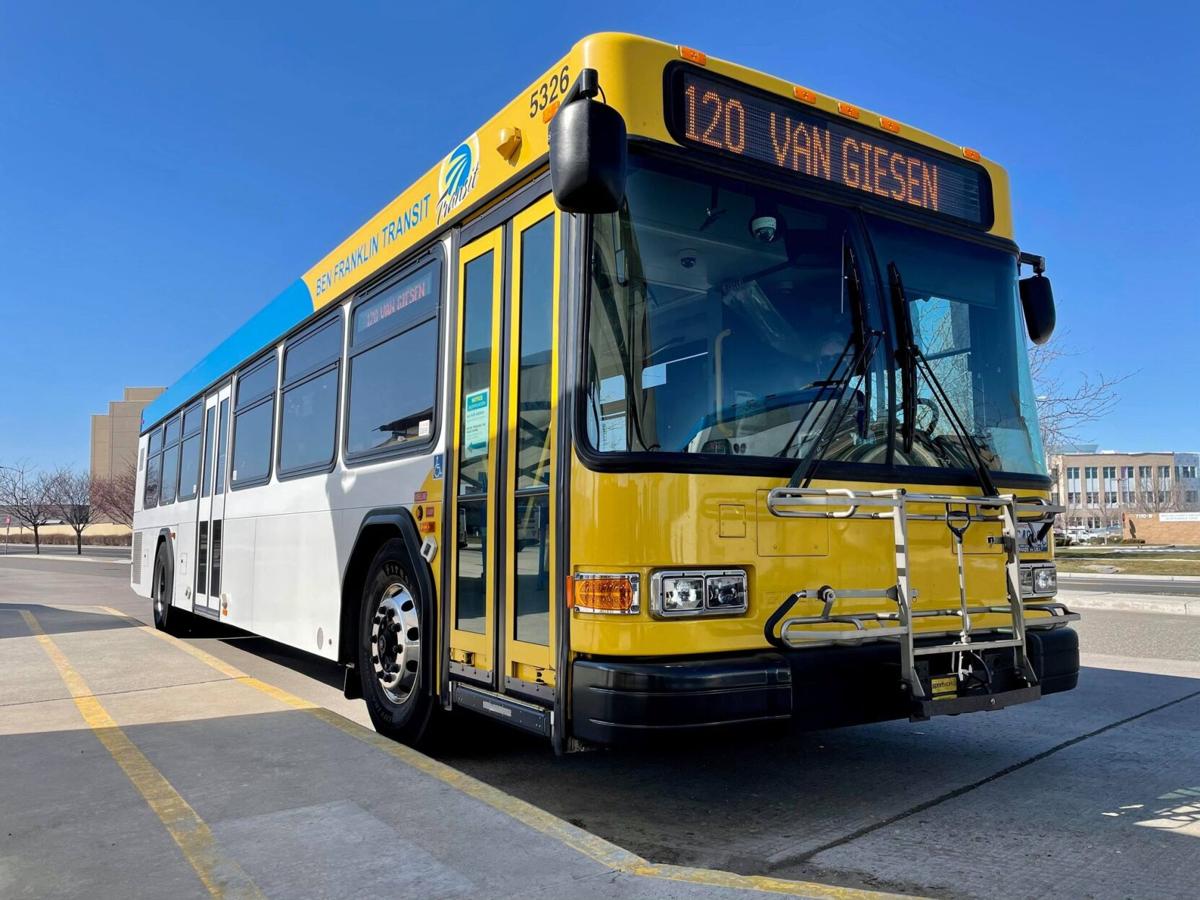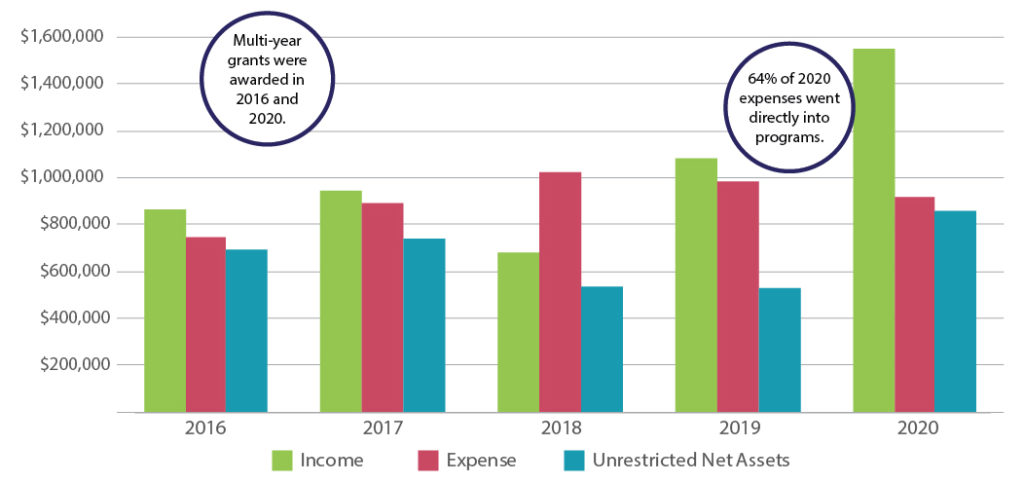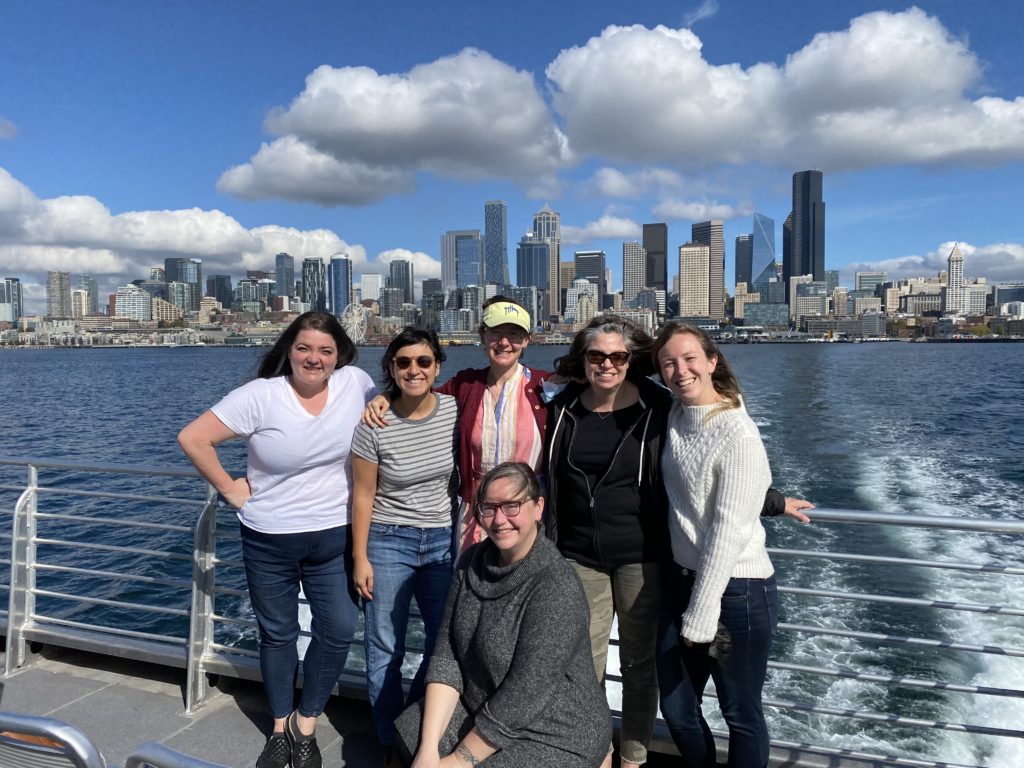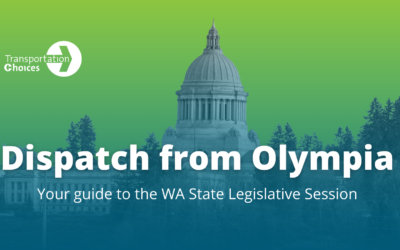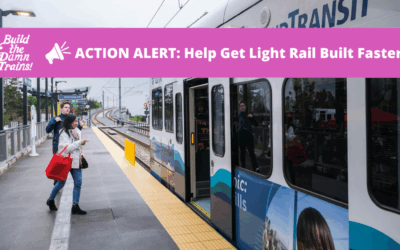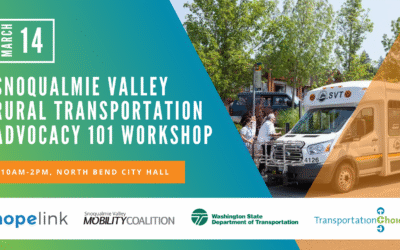2021 Work and Wins
In the past two years, TCC has won more than $30.5 billion in federal funding for transit, helped pass Seattle Proposition 1, a measure to preserve bus service and transit affordability programs, and supported Sound Transit to adopt an equitable realignment plan keeping Washington’s transit expansion on track. And who could forget? We celebrated a huge transit milestone — the opening of the Northgate Link Extension — ushering in a new golden age of expansion in the Puget Sound region.
In 2020, TCC created a comprehensive campaign around policing and enforcement in transportation that will advance mobility justice, redefine safety, repair harm, and center racial equity. TCC continues to work with national partners such as TransitCenter, the Transportation Equity Caucus, and the National Campaign for Transit Justice to institutionalize racial equity in transportation.
TCC continues to lead statewide advocacy around transportation, working to pass strong state-wide transportation policies that build a clean and equitable transportation system for all by reducing climate pollution, improving community health and economic opportunity, and creating sustainable alternatives to congestion.
Infrastructure Investment and Jobs Act
With the federal bipartisan infrastructure bill now signed into law, we have good reason to celebrate. Thank you to our Congressional delegation who fought to secure the critical funding needed to improve public transit, repair bridges, accelerate transportation electrification, and bring broadband to all.
Under the $1.2 trillion dollar Infrastructure Investment and Jobs Act, Washington is set to receive an estimated $8.6 billion, including $1.79 billion for public transit. That’s a major new set of investments to help us achieve Washington’s transportation goals!
Although the bill is historic in scope, and a win worth celebrating, we still have work to do to ensure that the disproportionate highway funding in the bill is prioritized for maintenance of our existing infrastructure, rather than new, traffic-inducing roads. Now it’s up to Washington State legislators to act on climate change and pass a transportation package that fully funds Washington’s transportation needs. TCC’s #TakesTransportation coalition published a letter signed by more than 120 local elected leaders in Washington asking the state legislature to pass a transformative transportation package that meets our needs for health, safety, and affordability, and addresses climate, social, and economic justice.
National Coalition for Public Transit
Transportation Choices and partners across the country united around a #SaveTransit message, targeting congressional delegates with sign-on letters, digital days of action, town halls, forums and media, winning $30.5 billion+ for transit. The transit funds provided under the bill are available for operating expenses related to the response to COVID-19 and the majority of the emergency funds can be used for payroll and operations. The bill also provides $2.21 billion for operating assistance grants to agencies that, because of the pandemic, require additional assistance for operations, personnel, cleaning, sanitization, and debt service payments incurred to maintain operations and avoid layoffs and furloughs. Beyond the benefits of direct stimulus dollars, the national organizing effort has created a fundamental shift in transit advocacy at the federal level. Partners on Capitol Hill called it an “earthshaking change” from the status quo. We are thrilled to have had the opportunity to organize alongside national partners for the support Washington agencies need, and will continue to fight for sustainable, progressive, and adequate funding for transit at the federal level and here at home.#TakesTransportation campaign
The It Takes Transportation campaign is a strategically targeted communications and political campaign to encourage legislators to passing a transformative transportation package. With ads running in the papers of key local legislators, targeted social media ads, and an email marketing campaign, we are ensuring legislators know that people across the state want a transformative package. As part of this campaign we organized a letter of support signed by more than 120 local elected officials and sovereign nation leaders from 70 different jurisdictions, from rural, suburban, and urban areas, and uniting members of both parties.
Successfully defended car tab revenue — again
After a hard-fought victory against Tim Eyman’s I-976 in court, a city council proposal again threatened to take away car tab revenue from transit. Concerned about the lack of process or input, TCC stepped up its advocacy and ensured increased stakeholder engagement, and ultimately preserved this precious revenue source for transit access and safety.
New funding & expectations for state transportation
When proposals to spend carbon pricing revenue on building new roads came up during the 2021 legislative session we fought back and won. The creation of the Carbon Emissions Reduction account within SB 5126, ensures that $5.2 billion in new revenue will be dedicated to strategies that reduce carbon emissions. And though we did not get a transportation package passed before Sine Die, our diverse coalition spoke up for a paradigm shift in transportation, focused on accessibility, sustainability and undoing past harms. Collectively we sent thousands of letters to legislators, authored op-eds, organized and participated in town halls, and lifted up stories about mobility access across Washington. Our message was more cohesive, more organized, and more unified than ever before and we set a new floor for future transit, pedestrian and bike investments.
Cleared the way for equitable enforcement
Following years of advocacy to improve Sound Transit’s fare enforcement practices, TCC continued the fight at the state level where a code fix was needed to divorce fare citations from the court system. We organized with partners and local elected leaders to support HB 1301, which was signed into law, clearing the way for a less punitive approach to fare enforcement in Puget Sound. Continuing this work, earlier this year Sound Transit launched their new Fare Ambassador pilot program, the focus of which is on passenger education and customer service rather than enforcement, and will help shape fare compliance policy change under consideration next year.
Put equity front and center at PSRC
After dozens of meetings, letters, and public testimony asking for an equity plan and decision-making body, we were so excited to see our requests realized: A commitment to developing both a Regional Equity Strategy and an Equity Advisory Committee was included in VISION 2050, the growth management, environmental, economic, and transportation vision for the central Puget Sound region. This foundational policy work allowed us to successfully advocate for — with our first-ever public action alert to PSRC board members! — a brand new $5 million racial equity set-aside that will be developed and managed by the new Regional Equity Advisory Committee. The Equity Advisory Committee had their inaugural meeting November 4, 2021.
Celebrated Northgate Link Extension
In October of this year, the Puget Sound region celebrated a major expansion of transit options with the opening of Sound Transit’s Northgate Link light rail extension, 4 miles of track and three new stations connecting our communities through public transit. The project advanced despite pandemic challenges thanks to the extraordinary efforts over decades from our region’s transportation leaders, construction workforce, contractors, and project staff, and opening day was an opportunity to acknowledge their commitment and celebrate the results of their dedication.
Celebration events gathered people from the transportation sector across Washington including advocates, agency and other public sector leaders, workers who build, operate, and maintain our system, and the companies that plan, design, and construct the infrastructure – all the people working to build a world-class transportation system for Washingtonians that advances goals around an inclusive economy, a sustainable environment, and race and social justice.
Northgate’s completion launched an exciting period of major light rail extension. Between now and 2024, Sound Transit will nearly triple the region’s light rail system from 22 to 62 miles. The new extension offers riders safe, reliable, 14-minute trips between Northgate and downtown Seattle. The bright future of transit has arrived at stations near you!
More engaged than ever
Our advocacy team took advantage of the remote 2021 session format to engage more people than ever in the fight for healthy, sustainable and equitable transportation policy and investment at the State legislature. We co-hosted a Clean & Just Transportation town hall with the Climate Alliance for Jobs and Clean Energy with more than 100 participants, introduced transportation issues for the first time ever at an all-remote Environmental Lobby week, and sent more actions to legislators than ever before: 280 people sent 1,812 emails.
King County Metro Policy Updates
In November 2021, King County Council’s Regional Transit Committee voted unanimously to pass a sweeping series of policy changes that will center equity and sustainability throughout Metro’s strategic plan, long-range vision, and service allocation. These updates are the culmination of years of work and advocacy by TCC and our partners, starting with the community-driven development of an equity framework intended to address areas and populations most impacted by racism and disinvestment. We anticipate the full Council to approve the updates in December 2021 and will be there to testify our support.
Accountable Sound Transit Realignment
For TCC and our partners in the Transit Access Stakeholders, our goals throughout this process have centered on delivering transit service projects on the voter-approved timeline using a process that centers equity and sustainability. This has meant that we’ve spoken up against reductions or delays in transit projects, and stood up for engagement of historically marginalized groups, a robust equity criteria in project evaluation, elevating projects in BIPOC neighborhoods, and prioritizing programs that deliver low-carbon access to transit stations.
“This [joint] approach addresses financial responsibility, transparency, equity, and flexibility, all while moving forward as quickly as possible with a robust, regional, and equitable system.” – Alex Hudson, TCC’s Executive Director
We applaud that the joint approach demonstrates a commitment to both cost savings and finding new revenue, equitable engagement, the prioritization of Graham Street and Boeing Access stations, and the smart, measured approach to parking. We will continue to push for Sound Transit to deliver core transit services and analyze how to best deliver flexible access as directed by the ST3 ballot measure language.
Successfully Protected Sales Tax for Ben Franklin Transit
Ben Franklin Transit, the transit agency serving the Tri-Cities, faced an internal threat to reallocate budget away from transit service and toward other non-mobility uses. TCC supported on the ground community members to publish an op-ed in the Tri-Cities Herald, sent action alerts, and brought people out to testify at the board meetings. Together we successfully defended these important transit dollars.
What’s next
We are looking ahead to the 2022 Washington State Legislative Session and the path to sustainable, long-term funding in Washington. Check out TCC’s priorities for the upcoming session.
A year of reconnecting


McKenna Lux brings added capacity to our education, outreach, and events programming as the Engagement & Events Manager. She enjoys creating events with TCC because the audience is so committed to a vision in which we are all connected by great public transit. She is dedicated to developing opportunities to learn about and advance conversations on building a healthier, more sustainable, more accessible future through transit.
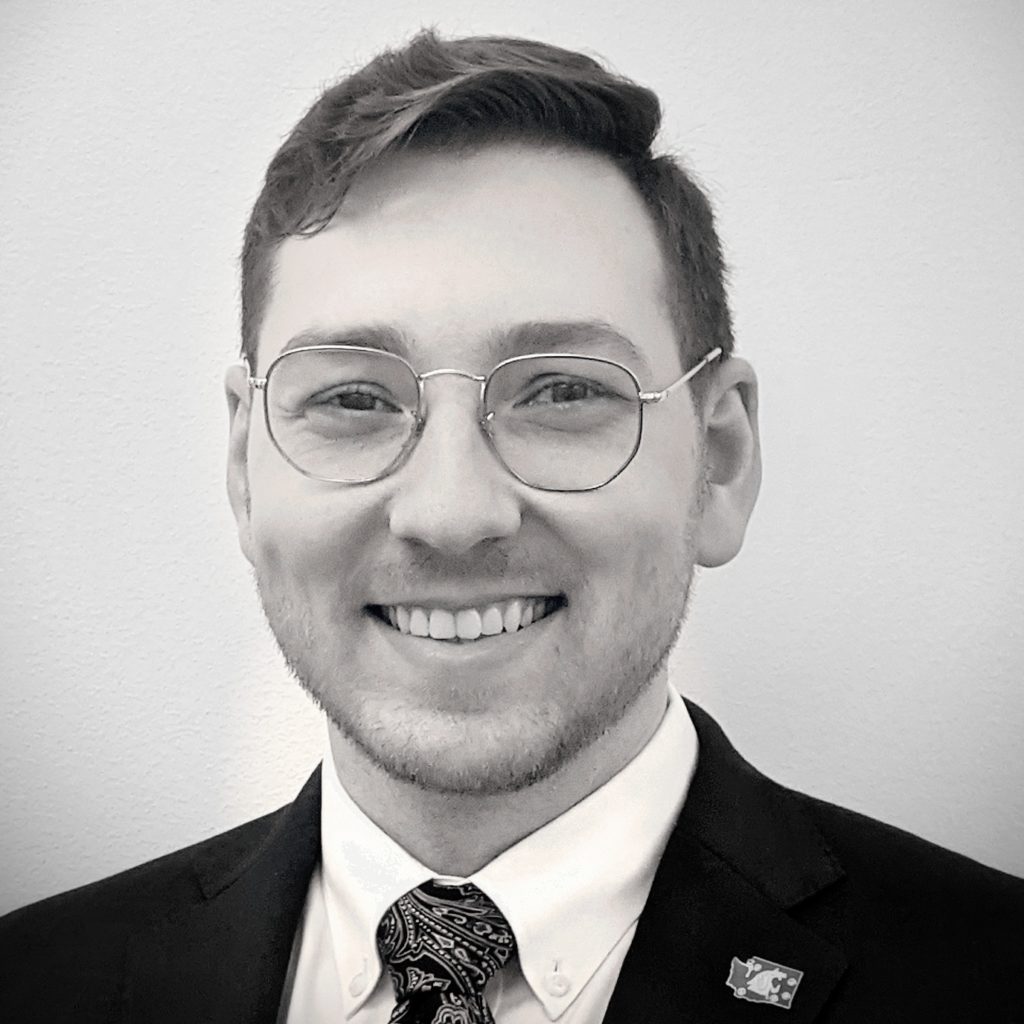

Susan Gleason recently joined the team as TCC’s new Development Manager, leading implementation of TCC’s fund development program. Susan arrives with years of background in transportation advocacy, fund development, communications, and nonprofit management. Susan is passionate about mobility as a basic human right and enjoys the culture of care and collaboration at TCC.
Being together again
TCC hosted four virtual Transit Talks in 2021 that brought together over 300 attendees, co-hosts, and panelists. Our Ride Transit Month celebration gathered dozens of rider stories and engaged with hundreds over social media and other digital campaigns. Most exciting of all was our biggest event of the year, where we were able to safely see each in person, with nearly 300 people gathering to show their love for transit and their support for TCC.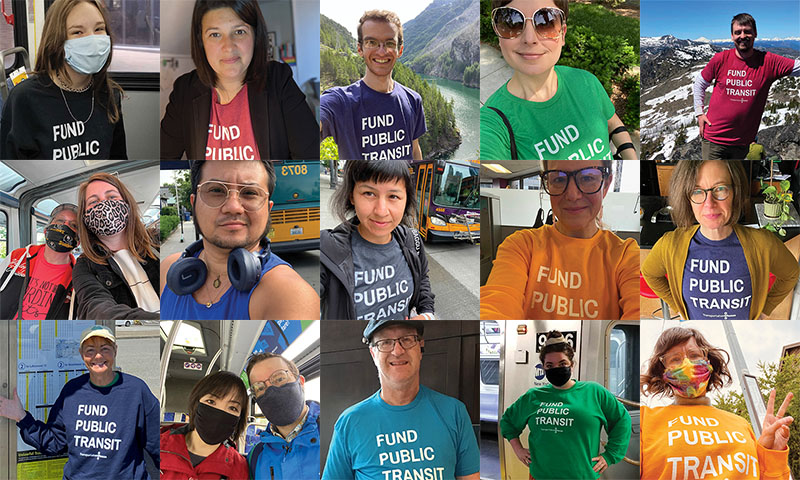
Fund Public Transit
We launched our first advocacy apparel line in 2021! We sold over 500 items including mugs, bags, totes, facemasks, shirts, and sweatshirts! And still counting! You can still get yours and we just added a new selection of kids clothing so the whole family can show their support to FUND PUBLIC TRANSIT. Our message has travelled all over the world, check out #fundpublictransit on Twitter to follow along!2020 Income: $1,550,006
- Grants: $1,138,681
- Individual/Corporate: $199,024
- Government/Associations: $210,700
- Other: $1,601
2020 Expenses: $919,939
- Policy: $233,643
- Education: $158,394
- Advocacy: $116,322
- Lobbying: $84,678
- Fundraising: $157,722
- Administration: $169,180
Mobility Justice

Mobility justice goes beyond the “equity” tagline. “Transportation has always been embedded in civil rights and racism,” says Robert Bullard, a professor of urban planning and environmental policy at Texas Southern University. America’s transportation system is deeply politicized and for the first time in American history, our political leaders are talking about the legacy of racism in transportation.
After the passage of the historic Infrastructure Investment and Jobs Act, Transportation Secretary Pete Buttigieg spoke about the need for Americans to acknowledge the institutionalized racism and racist policies in transportation that have harmed Black and Brown communities, and still do. “I’m still surprised that some people were surprised when I pointed to the fact that if a highway was built for the purpose of dividing a White and a Black neighborhood,” he said, “or if an underpass was constructed such that a bus carrying mostly Black and Puerto Rican kids to a beach — or it would have been — in New York, was designed too low for it to pass by, that that obviously reflects racism that went into those design choices. I don’t think we have anything to lose by confronting that simple reality.”
In the year following George Floyd’s murder, America has continued to grapple with a renewed racial reckoning, but there is still much more work to do. Over policing and enforcement in transportation still harms Black, Brown, and Indigenous folks disproportionately, the dismantling of Black communities for state and federal highways is happening right now a few miles north of Charleston, South Carolina, and research shows that people of color, including Black and Hispanic people and Asian Americans, are exposed to more pollution from nearly every source. “A lot of our current infrastructure, our highways, were built on — built through — Black communities, so we’re breathing in diesel emissions and other pollution just because we’re located right next to these highways,” said Justin Onwenu, a Detroit-based organizer for the Sierra Club.
As a currently white-led organization, we recognize that it is not enough to be not racist, it is imperative that we are explicitly and actively anti-racist in everything we do. To meet this we will continue to:
- Amplify Black voices in the transportation field.
- Create and support anti-racist policies with a broad coalition, instituting the use of race and social equity analyses in policy and process development, focusing on the priorities of Black communities and communities of color, sharing power and access, and centering their expertise in decision making.
- Educate our staff, board, and supporters on how to be anti-racist. Prioritize and develop our organizational Racial Equity Action Plan.
- Speak out against white supremacy and deepen our understanding of racial justice and the intersections of racism, whiteness, and transportation.
Throughout 2020 and 2021, TCC has dedicated time to educate ourselves and our networks about the connection between systemic and institutionalized racism and what it means to relentlessly advocate for mobility justice. TCC has recently updated our mobility justice resource list, comprising over 100 mobility justice articles and resources, including the resources below which we refer to often. We invite everyone to take a look, learn, and join us in our fight against racism.
Safety For All
“Safety For All” chronicles how agencies like BART in San Francisco, TriMet in Portland, and SEPTA in Philadelphia are addressing safety concerns by hiring unarmed personnel, developing high profile anti-harassment campaigns, and better connecting riders to housing and mental health services.”Equity in Practice: A Guidebook for Transit Agencies
“In addition to the inequities caused by a transportation system biased in favor of private car travel, many transit systems are themselves shaped by a historical legacy of discrimination and marginalization. To address these inequities, transit agencies must look within.”
The Legacy of Racism in Transit
So much of our work as transit advocates is undoing the legacy of racism in transportation: from disparities in transit service; to bus stop quality; to affordable fares; to the harms of over policing and enforcement. This powerful yet accessible film is a must-watch for anyone who believes in equitable transportation for all.

Fund the Future
Decades ago, supporters like you understood how transit delivers an equitable, sustainable, vibrant economic future for our region, and made investments we are all reaping the benefits from today. Across the state, communities need more and better mobility options than ever before to meet the challenges of recovering from a pandemic, a hard hit economy, and the effects of climate change. TCC is committed to fighting for a world in which healthy communities are connected by great transit, and all Washintonians benefit from investments in an equitable transportation system. By supporting TCC’s work, you support everyone who depends on reliable, accessible transit and all Washingtonians who deserve a cleaner, healthier, more connected state.
Visit our store!
Check out our selection of Fund Public Transit tees, sweatshirts, mugs, and more. Show your support for public transit while also supporting TCC’s work. All profits go directly to our programs.
Sponsorship Program
If your organization is interested in sponsoring an event or program, let us know! We work with a variety of groups and offer great sponsorship benefits. Contact us for more information on how you can participate.
Become a monthly donor
Monthly donors allow us to continue our work with sustainable funding that we can rely on. Sign up today to show your support for transit.
A word from our partners
“TCC has been an incredible partner and co-collaborator in advocating for more equitable and sustainable transit for community members throughout King County and the region. I’m excited to see what all we will be able to accomplish together for and with community members in the near future.”
“Transit agencies across Washington face unique challenges. TCC is a compelling voice that consistently shows up to promote our needs, defend our work, and support the riders we serve.”
“We work with great local transportation advocates all over the country. With their professionalism, dedication and ability to win better transportation options in Puget Sound, Transportation Choices Coalition leads the pack.”
“TCC is a critical driving force for good in our community – with deep policy expertise and the ability to bring together effective coalitions and advocates, TCC is leading the way toward a more just and equitable transportation system for all and we are grateful for their leadership.”
“WSTA and TCC have enjoyed a historically long and deep partnership to bring better multimodal options to all corners of Washington. We work in tandem to leverage our individual organization’s strengths urging policymakers to make vital and significant multimodal investments to achieve a more equitable transportation system for all. WSTA looks forward to carrying that multimodal torch forward with TCC as we continue the fight.”
“TCC bridges the connections between local, regional, state and federal policy. They have represented Washington State in national advocacy spaces, speaking up for and winning equitable investments in public transit from our federal government.”
“A robust and equitable recovery for Downtown Seattle relies on a strong public transit system to ensure that visitors and workers have safe and accessible options to get to, through and around our center city. TCC is playing an essential role bringing together businesses, regional leaders, workers and community voices to find solutions that ensure our transit system is able to rebound and come back stronger and better than ever.”
“It has been a wonderful experience working with all at TCC. As co-chair of the Transportation Equity Caucus, I have the opportunity to engage with many at TCC. I am in awe of their commitment to equity, listening to communities, uplifting accountability and not running away from conversations about race. In fact, working with them is refreshing and as a Black woman in policy that is a rare thing to proclaim.”
“The TCC team shows up with integrity, clarity of vision and always in the spirit of collaboration. Even in the most challenging times, they stay focused on bringing folks together to advance equity in transportation and build a better future for communities in Washington.”
“Building, operating, and maintaining transit creates good jobs and connects workers to their livelihoods and each other. TCC is our ally in the fight to build a sustainable economy where working people can thrive.”
About Transportation Choices Coalition
What We Do
Our Mission: Transportation Choices Coalition works to bring Washingtonians more and better transportation choices — real opportunities to take a bus, catch a train, ride a bike, or walk.
Our Vision: Affordable, walkable, bike-friendly, vibrant communities connected by great transit.
TCC represents
In 2021, we presented at dozens of virtual events and panel sessions, including with- Urban Land Institute
- Climate Solutions
- Seattle Foundation
- Futurewise
- Seattle Channel
- PSRC Transportation Policy Board
- Climate Alliance for Jobs and Clean Energy Governance Board
- Ultra High Speed Rail Advisory Group
- Joint Transportation Committee Needs Assessment Advisory Board
- Highway System Plan Advisory Committee
- National Transit Equity Caucus
- and more!
Staff
- Alex Hudson, Executive Director
- Kelsey Mesher, Deputy Director
- Hester Serebrin, Policy Director
- Matthew Sutherland, Advocacy Director
- McKenna Lux, Engagement & Events Manager
- Susan Gleason, Development Manager
Board
We would like to recognize the service of Rob Berman, Ann Freeman Manzanares, and Barb Wilson who are rolling off our Board this year. Thank you for moving TCC’s mission forward.
- Charla Skaggs, Board President, Principal Communications and Outreach Specialist, Maul Foster & Alongi, Inc
- Dan Kully, Board Vice President, Managing Partner, Kully Struble, Founder of Two Degrees
- Kristina Walker, Board Treasurer, Tacoma City Councilmember
- Richard de Sam Lazaro, Board Secretary, Senior Manager, Government and Community, Expedia Group
- Rob Berman, Washington Transportation Business Development Manager, HDR
- Brynn Brady, President, Ceiba Consulting Inc
- Toby Crittenden, Transit Enthusiast
- Ann Freeman Manzanares, General Manager, Intercity Transit
- Nicole Grant, Executive Secretary-Treasurer, MLK Labor
- Patience Malaba, Policy Manager, Housing Development Consortium
- Jon Scholes, President and CEO, Downtown Seattle Association
- Jeremy Une, Bus Driver
- Caleb Weaver, Government Affairs, Uber
- Jacob Gonzalez, Planning Manager for Community and Economic Development, City of Pasco
- Emily Mannetti, Transportation Client Account and Business Development Manager, Jacobs
News & Updates
Take Action to Support Light Rail and Climate-Friendly Transportation Planning
We need your help to advance two of our top-priority bills this session. Senate Bill 6148 would allow Sound Transit to issue 75 year bonds and House Bill 2134 would ensure that regional transportation planning supports Washington’s climate goals.
📢Action Alert: Give Sound Transit a Tool to Build Light Rail Faster
Please write to your senator today to support Senate Bill 6148.
Join TCC for a Rural Transportation Advocacy 101 Workshop in Snoqualmie Valley!
Transportation Choices Coalition is hosting an advocacy training to support rural transit users. This workshop will feature a panel discussion followed by a training to learn and practice advocacy skills.
Stay Connected!
Sign up for our newsletter and stay up to date on the latest transit, walking, and biking news in Washington State.


